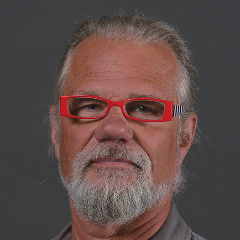Trauma-Informed Care (TIC) Intergenerational Trauma
This course was created and provided by the Virtual Center of Excellence (VCE), a former project of the Detroit Wayne Integrated Health Network (DWIHN). Content and format will be updated in the near future to address current accessibility standards. If you are unable to access the content in this section, please contact the imp support team for assistance.
This course will increase understanding of intergenerational trauma and the transmission of it through individuals, families, and cultures.
Defining Intergenerational Trauma
Participants of this course will develop a working understanding of Intergenerational Trauma as it relates to trauma-informed care and providing treatment to clients. This course will provide examples and best practices for communicating what this type of trauma is to patients across ages and communities.
Trauma and Communities
This course will provide evidence-based research regarding how trauma can be passed through generations and communities. For example, current descendants of Holocaust victims may still be exposed to that intergenerational trauma and can create treatment barriers.
Intergenerational Trauma
It is important for behavioral health professionals to understand that clients may be facing external factors, in regards to trauma, that may not appear to be related to their current treatment. This course provides insight into why intergenerational trauma may affect the environment and treatment of a client or cohort of clients facing these external factors.
Substance use disorders in the American Indian communities have been linked to the response of intergenerational trauma and the factors of long-term distress.
- Devlop an understanding of intergenerational trauma.
- Understand how that trauma can affect a large group of people and be passed down through time.
- Understand how that can effect your client who is part of the cohort and how that can, in turn, affect the treatment environment.

Dr. Jim Henry
Project Director and Professor of Social Work
Dr. Jim Henry: CTAC co-founder and project director has a professional history that includes over 17 years as a child welfare/protective services worker, and over 10 years developing and providing trauma-informed instruction in the Social Work curriculum at Western Michigan University and director of CTAC. Dr. Henry has received several awards including the 2003 Michigan Child Advocate of the Year. In addition to his work on multiple national committees and grant projects to address child maltreatment and the impact of trauma he has also published several articles in professional journals and presents at national and international conferences on child maltreatment including physical abuse, domestic violence, and child sexual abuse. He has trained over 30,000 professionals, caregivers, and community members on child maltreatment and trauma-informed practices and recently developed a secondary trauma training focusing on understanding the impact of secondary trauma, grief, and building resiliency.
Course Progress
Course Content
This content is unavailable
Enroll in the course to access
What People Are Saying
The online course was user friendly and helped me to understand the trials of the persons served by their team."

